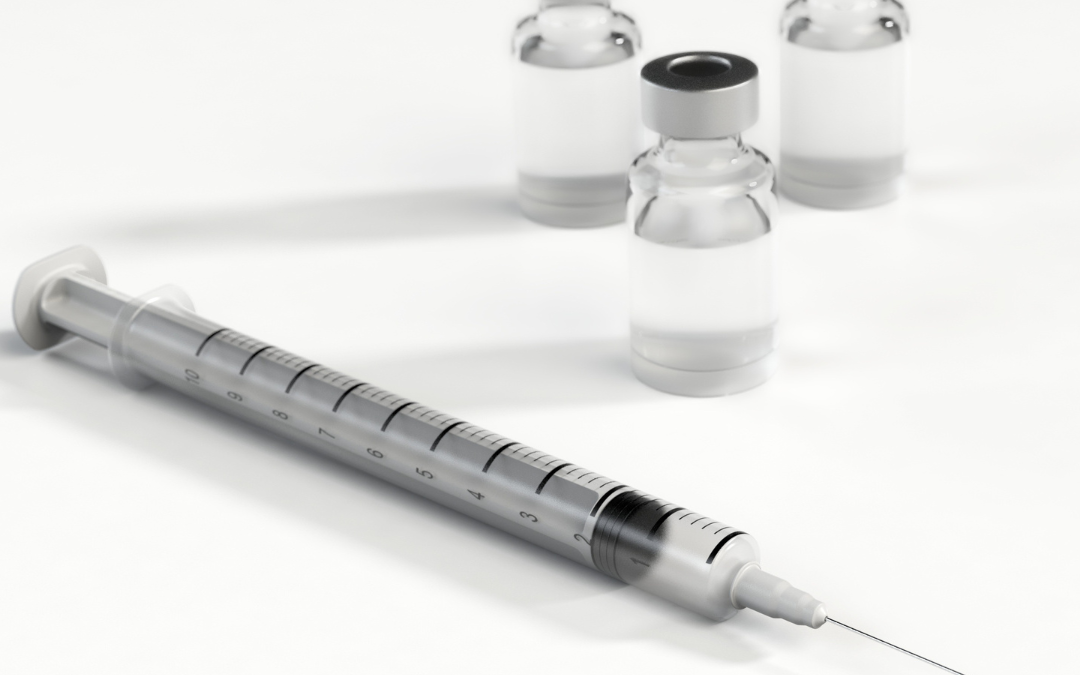Allergies affect millions of people worldwide, causing symptoms ranging from mild discomfort to life-threatening reactions. While avoiding allergens and using medications can provide temporary relief, immunotherapy (aka allergy shots) offers a long-term solution by addressing the root cause of allergies. In this blog, we delve into what immunotherapy (allergy shots) is, how it works, its benefits, and what to expect during treatment.
What Is Immunotherapy?
Immunotherapy is a medical treatment designed to reduce sensitivity to allergens. It works by gradually exposing your immune system to small, controlled amounts of the allergen, helping your body build a tolerance over time. These are often referred to as allergy shots. Allergy shots have been shown to prevent the development of new allergies and, in children, it can prevent the progression of the allergic disease from nasal allergy to asthma.
How Does Immunotherapy Work?
The goal of immunotherapy (allergy shots) is to retrain your immune system. When you have an allergy, your immune system mistakenly identifies a harmless substance, like pollen or pet dander, as a threat. This triggers an inflammatory response, leading to symptoms such as sneezing, itching, or wheezing.
Immunotherapy works in phases:
1. Build-Up Phase: During this phase, you’ll receive small doses of the allergen, gradually increasing. This helps your body start adapting to the allergen. Allergy shot injections are given once per week with increasing amounts of allergens until the full (maintenance) dose is achieved. This phase typically lasts six months.
2. Maintenance Phase: Once the optimal dose is reached, you’ll transition to a maintenance schedule. In this phase, allergy shot injections are given every 2-4 weeks. This phase continues for three years.
What Allergies Can Immunotherapy Treat?
Immunotherapy is effective for a variety of allergies, including:
· Seasonal Allergies (Hay Fever): Caused by pollen from trees, grasses, and weeds.
· Indoor Allergies: Including dust mites, mold, and pet dander.
· Food Allergies: Research into immunotherapy for food allergies is ongoing, with promising results in some cases.
Benefits of Immunotherapy
1. Long-Term Relief: Unlike medications that only manage symptoms, immunotherapy can provide lasting relief by addressing the root cause of allergies.
2. Reduced Dependence on Medication: Many patients find they need fewer over-the-counter or prescription allergy medications after completing immunotherapy.
3. Improved Quality of Life: With fewer symptoms, you can enjoy activities and environments that were once problematic.
4. Prevention of New Allergies: Immunotherapy may reduce the risk of developing new allergies or asthma, especially in children.
5. Cost-Effective: While the upfront cost of immunotherapy may seem high, it can save money in the long run by reducing the need for medications and doctor visits.
Who Is a Good Candidate for Immunotherapy?
Immunotherapy is suitable for individuals who:
-
Experience moderate to severe allergy symptoms that interfere with daily life.
-
People with allergic asthma, nasal and eye allergy, and certain food allergies
-
Do not find sufficient relief from medications or prefer to minimize their use.
-
Are willing to commit to the treatment schedule, which can span several years.
-
Have tested positive for specific allergens through skin or blood tests.
It is not typically recommended for:
-
Individuals with severe asthma or uncontrolled health conditions.
-
Pregnant individuals (though treatment can continue if already started).
-
Those allergic to multiple, unrelated allergens, as this can complicate treatment.
-
Those under the age of 5.
What to Expect During Immunotherapy
1. Initial Consultation: Your allergy provider will review your medical history, conduct allergy testing, and discuss your treatment goals to determine if immunotherapy is right for you.
2. Custom Treatment Plan: Based on your test results, a tailored immunotherapy regimen will be created, targeting your specific allergens.
3. Treatment Sessions:
-
You will receive a series of injections. The injections are given in the subcutaneous (fatty) tissue on the back of the arm.
-
For your safety, you will be required to remain in the lobby for 20 minutes after getting the injections. Rarely, a patient may require a 30-minute wait after injections. Before you leave, a medical staff member must check for any reaction at the injection site.
-
New vial appointments require a provider visit and may last 60-90 minutes. New vial appointments are every 6 weeks during the first 6-month build-up phase and every 12 weeks once you have reached the maintenance phase.
4. Monitoring Progress: Regular follow-ups with your allergist will ensure the treatment is effective and adjust the plan if needed.
Safety and Side Effects
Immunotherapy is generally safe when administered under the guidance of a qualified allergy provider. However, like any medical treatment, it carries some risks:
· Local Reactions: Redness, swelling, or itching at the injection site is common. These reactions can occur immediately or several hours later. In some cases, there may be swelling of the arm.
· Systemic Reactions: Rarely, immunotherapy can cause more widespread allergic reactions, such as sneezing, nasal congestion or hives.
It is possible for a serious, but very rare, systemic reaction, called anaphylaxis, to occur. In addition to symptoms associated with a mild systemic reaction, symptoms of an anaphylactic whole-body reaction can include (but are not limited to): swelling of the throat, wheezing or a sensation of tightness in the chest, nausea, and dizziness. Anaphylaxis is a life-threatening allergic reaction and must be treated immediately. Most serious reactions, such as anaphylaxis, occur within 20 minutes after injection
Your allergist will discuss these risks and provide guidance on recognizing and managing side effects.
Tips for Success
1. Be Consistent: Attend all scheduled appointments.
2. Communicate with Your Doctor: Report any side effects or changes in your symptoms promptly.
3. Be Patient: Immunotherapy is a long-term commitment, often requiring 3-5 years of treatment for maximum benefit.
4. Follow Your Allergy Action Plan: Continue to avoid allergens and use medications as needed during the early phases of treatment.
The Future of Immunotherapy
Ongoing research is expanding the possibilities of immunotherapy. Scientists are exploring:
· Oral Immunotherapy (OIT): A promising option for food allergies, involving the gradual ingestion of small amounts of the allergen.
· Biologic Therapies: Targeted treatments like monoclonal antibodies that modulate specific immune pathways.
· Combination Approaches: Combining immunotherapy with other treatments to enhance efficacy and reduce side effects.
Immunotherapy represents a transformative option for allergy sufferers, offering the potential for lasting relief and improved quality of life.
If you’re tired of managing allergy symptoms and want a long-term solution, immunotherapy could be the answer. Schedule a consultation with Premier Allergy today to take the first step toward living allergy-free.





